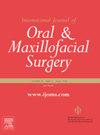增强外科医生的能力:人工智能会改变口腔颌面外科吗?
IF 2.7
3区 医学
Q2 DENTISTRY, ORAL SURGERY & MEDICINE
International journal of oral and maxillofacial surgery
Pub Date : 2025-02-01
DOI:10.1016/j.ijom.2024.09.004
引用次数: 0
摘要
人工智能(AI)可以利用先进的计算技术模仿人类的智能行为,提高口腔颌面外科(OMS)诊断和治疗的精确度和效率。本研究旨在考察人工智能在口腔颌面外科文献中的现状,并强调进一步研究的迫切需要,以优化人工智能在临床实践中的整合,提高患者的治疗效果。本研究对OMS相关期刊进行了范围界定,重点关注OMS相关应用。使用 "人工智能"、"卷积网络"、"神经网络"、"机器学习"、"深度学习 "和 "自动化 "等术语对 PubMed 进行了检索。对 90 篇文章进行了分析,并将其分为以下子类:病理学、正颌外科、面部创伤、颞下颌关节疾病、牙槽外科、牙科植入物、颅面畸形、整形外科、美容外科和并发症。2019年后发表的人工智能相关研究大幅增加,占总查阅量的95.6%。研究数量的激增反映出人们对人工智能及其在 OMS 中的应用潜力越来越感兴趣。在这些研究中,人工智能在OMS中的主要用途是病理学(如病变检测、淋巴结转移检测)和正颌外科(如通过面部骨骼分割进行手术规划)。这些研究主要采用卷积神经网络(CNN)和人工神经网络(ANN)来完成分类任务,从而有可能改善临床结果。本文章由计算机程序翻译,如有差异,请以英文原文为准。
Empowering surgeons: will artificial intelligence change oral and maxillofacial surgery?
Artificial Intelligence (AI) can enhance the precision and efficiency of diagnostics and treatments in oral and maxillofacial surgery (OMS), leveraging advanced computational technologies to mimic intelligent human behaviors. The study aimed to examine the current state of AI in the OMS literature and highlight the urgent need for further research to optimize AI integration in clinical practice and enhance patient outcomes. A scoping review of journals related to OMS focused on OMS-related applications. PubMed was searched using terms “artificial intelligence”, “convolutional networks”, “neural networks”, “machine learning”, “deep learning”, and “automation”. Ninety articles were analyzed and classified into the following subcategories: pathology, orthognathic surgery, facial trauma, temporomandibular joint disorders, dentoalveolar surgery, dental implants, craniofacial deformities, reconstructive surgery, aesthetic surgery, and complications. There was a significant increase in AI-related studies published after 2019, 95.6% of the total reviewed. This surge in research reflects growing interest in AI and its potential in OMS. Among the studies, the primary uses of AI in OMS were in pathology (e.g., lesion detection, lymph node metastasis detection) and orthognathic surgery (e.g., surgical planning through facial bone segmentation). The studies predominantly employed convolutional neural networks (CNNs) and artificial neural networks (ANNs) for classification tasks, potentially improving clinical outcomes.
求助全文
通过发布文献求助,成功后即可免费获取论文全文。
去求助
来源期刊
CiteScore
5.10
自引率
4.20%
发文量
318
审稿时长
78 days
期刊介绍:
The International Journal of Oral & Maxillofacial Surgery is one of the leading journals in oral and maxillofacial surgery in the world. The Journal publishes papers of the highest scientific merit and widest possible scope on work in oral and maxillofacial surgery and supporting specialties.
The Journal is divided into sections, ensuring every aspect of oral and maxillofacial surgery is covered fully through a range of invited review articles, leading clinical and research articles, technical notes, abstracts, case reports and others. The sections include:
• Congenital and craniofacial deformities
• Orthognathic Surgery/Aesthetic facial surgery
• Trauma
• TMJ disorders
• Head and neck oncology
• Reconstructive surgery
• Implantology/Dentoalveolar surgery
• Clinical Pathology
• Oral Medicine
• Research and emerging technologies.

 求助内容:
求助内容: 应助结果提醒方式:
应助结果提醒方式:


